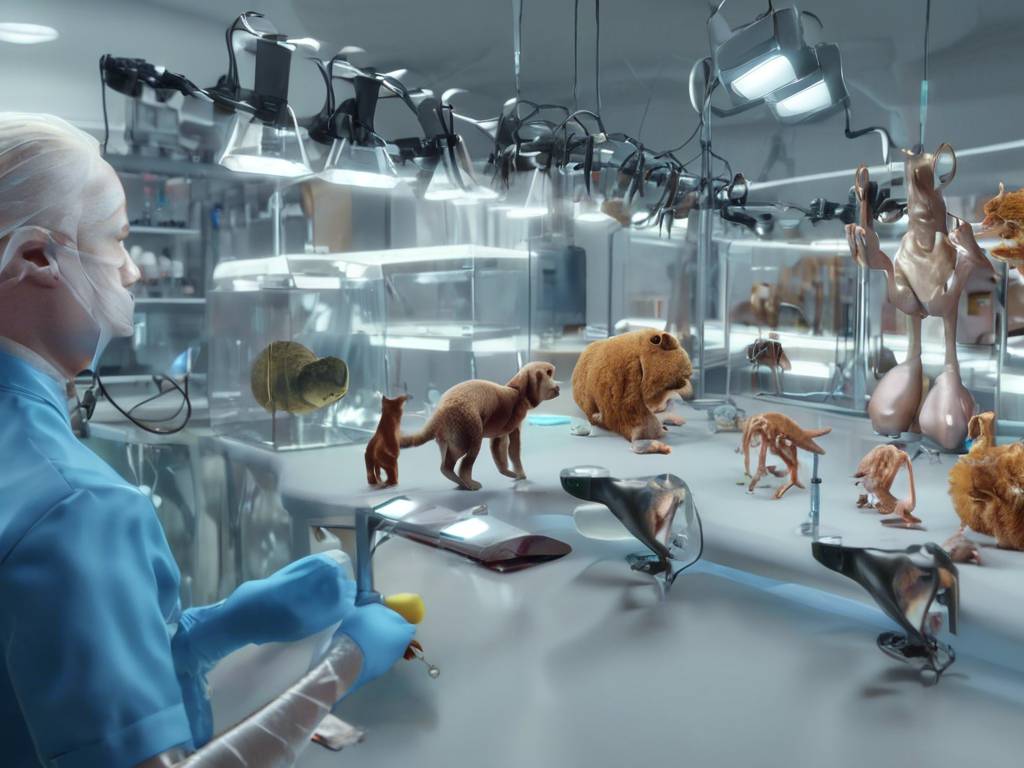U.S. FDA Inspectors Express Concerns About Animal Welfare at Neuralink Lab
Inspectors from the U.S. Food and Drug Administration (FDA) recently conducted an inspection of Neuralink’s California laboratory and raised concerns about how the company was assessing and documenting animal welfare, according to documents reviewed by Decrypt. The FDA found that Neuralink failed to provide necessary materials related to scientific equipment maintenance, hygiene, and animal welfare during the inspection.
The inspection took place in June, and Redica Systems, a regulation-focused data analytics platform that obtains government reports through public records requests, shared the FDA report with Decrypt.
Lack of Documentation on Animal Living Conditions
- The FDA inspectors expressed concerns about animal welfare at Neuralink’s Fremont lab, specifically regarding a lack of documentation related to animal living conditions.
- During a two-year period from 2021 to 2022, Neuralink failed to provide any documentation on the calibration and maintenance of its “vital signs monitor,” which is essential for monitoring animals’ health.
- The startup also did not provide any documentation from 2022 indicating that it conducted water quality tests as required by Laboratory Animal Care Program procedures.
Despite these concerns, the FDA did not reject Neuralink’s request to proceed with human trials.
Neuralink’s Human Trials Approval
In spite of the documented problems at Neuralink, Elon Musk announced that the company had received FDA approval to begin human trials. The company aims to develop implantable brain chips for direct human-machine control and interaction.
Last month, Musk revealed that Neuralink successfully implanted a computer chip in its first human subject.
Controversy Surrounding Neuralink
Neuralink has faced criticism and controversy for its practices in recent years:
- Since 2018, the company has reportedly killed approximately 1,500 animals while attempting to connect brains to computer interfaces.
- Records from the California Primate Research Center revealed that monkeys who received a Neuralink chip implant suffered greatly post-surgery, with some even pulling wires out of their heads due to fear and discomfort before being euthanized by Neuralink employees.
Decrypt reached out to the FDA and Neuralink for comment but did not receive an immediate response.
Hot Take: Animal Welfare Concerns Raise Ethical Questions for Neuralink
The FDA’s concerns about animal welfare at Neuralink’s lab raise important ethical questions about the company’s practices. While Neuralink has gained approval for human trials, it must address these concerns to ensure the ethical treatment of animals and maintain public trust.
Some key takeaways include:
- The FDA expressed concerns about a lack of documentation on animal living conditions and essential monitoring equipment maintenance at Neuralink’s lab.
- Neuralink’s approval for human trials despite these concerns highlights potential gaps in regulatory oversight.
- The controversy surrounding Neuralink’s animal testing practices underscores the need for transparent and ethical research in the field of neurotechnology.
As Neuralink continues its development of brain chips, it is crucial that the company prioritizes animal welfare and addresses these concerns raised by regulatory agencies. Ethical considerations should be at the forefront of any scientific advancements in this field.





 By
By
 By
By
 By
By

 By
By
 By
By